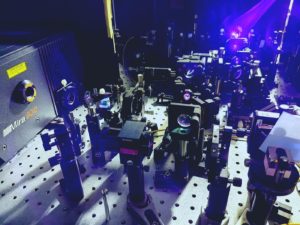It has been established that quantum models can provide a simpler description of most processes than the best possible classical model. However, the extent to which the quantum model can outperform the classical was an open question. In our article, “Provably unbounded memory advantage in stochastic simulation using quantum mechanics,” we answer this question and demonstrate that quantum theory’s advantage can be made unboundedly large. Specifically, we consider digital simulations of a continuous processes, and show that whereas increasing the precision on a classical simulator would always increase the memory requirement, the memory requirement for a simulation running on a quantum computer eventually saturates at some finite value. Any increase in precision beyond this point comes at no additional memory cost.

A consequence of this is that for some processes, not only does quantum theory provide a simpler description of reality, but rather failure to use quantum theory would result in that process having unboundedly large complexity. There are hence processes that cannot be described using a classical simulator, but are fine if a quantum device is used. This hence necessitates quantum theory, over classical theory, as a reasonable description of reality.
- Unbounded memory advantage in stochastic simulation using quantum mechanics.
- Andrew Garner, Qing Liu, Jayne Thompson, Vlatko Vedral, Mile Gu. New Journal of Physics 19.10 103009




